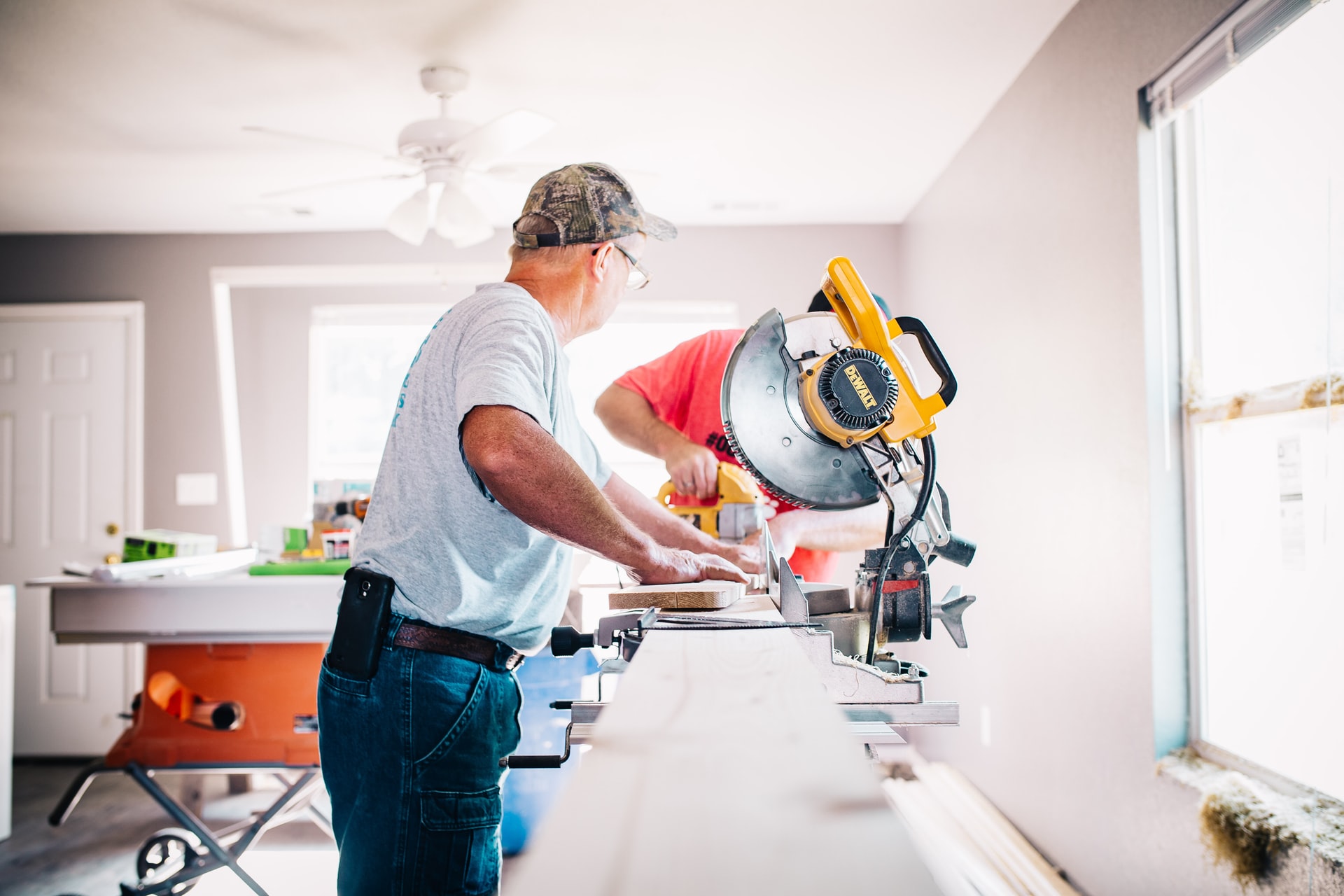Financing a home gives you control over the property. Each monthly loan payment builds up your equity until you own your home outright. Loans let you defer a full payment across multiple years, and some homeowners would like to do the same with renovation costs. Home renovation will cost thousands of dollars, but not everyone has enough cash in the bank for those investments. Some homeowners wonder if they can add renovation costs to their mortgages. We’ll discuss the process and some critical information to know about financing renovation costs.
Things to Consider Before Adding Renovation Costs to Your Mortgage
Adding renovation costs to your mortgage is a significant financial decision. You should consider these factors before tacking renovation costs on your home loan.
Amount to Borrow
You should estimate renovation costs before approaching a lender. Underestimating costs can force a second visit or uncomfortable financial decisions. The loan approval process could take several weeks, and an additional request can cause delays. The lender also may not approve your second request if your financial situation changes. Asking for too much money leads to unnecessary interest payments. You want to pay as little interest as possible while getting the exact money you need. You might end up with the incorrect estimate, but making an estimate and reviewing data puts you closer to the actual costs.
Current Home Equity
Some homeowners use a home equity loan to get extra funds. These homeowners tap into a portion of their home equity to fund renovation costs. You can get a cash-out refinance or use a home equity line of credit to turn your equity into renovation funds.
Your Credit Score and Credit History
A credit score reveals a borrower’s ability to manage financial obligations. Lenders reward borrowers with higher scores by providing more attractive rates and maximum loan amounts. Some borrowers raise their credit scores before approaching lenders. A few extra points can save you thousands of dollars in interest payments. You should also review your credit history to make sure the credit bureaus didn’t make any mistakes. Some borrowers spot and correct errors on their reports, resulting in a few extra points.
Existing Debt and Loans
Can you handle additional debt? Adding renovation costs to your mortgage will increase your expenses and reduce your budget. However, you should only take on as much debt as you can comfortably afford. Lenders will look at your debt-to-income ratio to determine if you can afford the extra debt.
The debt-to-income ratio measures your debt against your income. For example, if you pay $2,500 per month in loan payments and make $5,000 per month, you have a 50% debt-to-income ratio. Lenders usually reject applicants with debt-to-income ratios above 45%. You can reduce your debt-to-income ratio by getting a raise, working a side hustle, and paying down existing debt.
Monthly Payments
Incurring more debt will increase your monthly payments. You should assess your budget and calculate how much room you have to cover renovation costs. An extensive renovation will stretch your budget more than a small-scale operation.
Length of Repayment
You will have to pay back the principal plus interest regardless of the type of loan. The length of the loan impacts how much you pay each month. You’ll have lower monthly expenses with a 30-year term than with a 15-year term. However, a borrower pays more interest in the long run with the 30-year term. If you want to get out of debt sooner, pick a shorter repayment length that you can afford in your budget. Homeowners seeking more room in their budget should aim for lengthier loan repayment terms.
Common Reasons to Add Renovation Costs to Mortgage
Many homeowners add renovation costs to their mortgages, which offers several financial advantages that we discuss below.
No Equity
Not every homeowner can tap into home equity. Some borrowers use open-ended mortgages to purchase fixer-uppers and other properties that need work. These mortgages let you add renovation costs to the final loan amount. You can only use the renovation proceeds on home improvements. This distinction makes renovation funds different from home equity, which can be used for any purpose. You only get charged interest when you deploy these funds.
Single Loan and Monthly Payment
Adding more loans to your financials makes it challenging to stay on top of obligations. You might miss loan payments even if you have enough funds because you don’t remember them. A single loan streamlines the process and only results in one monthly payment for your mortgage and home renovation loan.
Lower Interest Rates
Open-end mortgages have lower interest rates than their counterparts. You could get a construction loan, but they have higher interest rates and shorter terms. A lower rate can save you thousands of dollars over the loan’s duration.
How to Add Renovation Costs to Your Mortgage
Homeowners can explore several financial products that let them add renovation costs to their mortgages. We have outlined the pros and cons of popular choices.
FHA 203k Loans
If you use an FHA loan to purchase your home, this program applies to you. An FHA 203k loan gives you the financing to cover repairs and renovations. In addition, you can combine your traditional FHA loan and FHA 203k loan into a single monthly payment.
FHA loans are an affordable way to buy a property. You can make a down payment as low as 3.5%. Borrowers with 500 credit scores can still get one of these loans, but they have to put 10% down. Unfortunately, most non-FHA lenders will immediately turn you away if you have a credit score below 620.
The FHA 203k loan is attractive for people with fewer available funds and lower credit scores. However, they involve more paperwork than average and come with PMI. You also have to be a primary residence to capitalize on this program. You can’t use an FHA loan to buy a fixer-upper as an investment property.
Construction Loans
Construction loans are more affordable in the beginning. During construction, you only have to make interest payments. You will owe the principal at the end of the loan, and this payment can catch people off guard. Higher interest rates make the loan more challenging for homeowners to navigate. You can convert the construction loan into a permanent loan to give yourself more time to pay back the principal.
Construction loans don’t have many advantages, but they have considerable downsides. You have to receive approval for each step of the construction before receiving additional funding. Lenders use a drawing schedule to give you small allotments of your loan’s principal. This hurdle can slow down a renovation, and lenders impose several requirements before giving you this risky loan. Most lenders want to see a credit score above 680 and a 20% down payment. Not every homeowner can meet those parameters.
Cash-out Refinance
A cash-out refinance lets you tap into your home’s equity to fund renovations. A refinance wipes out your existing mortgage and replaces it with a new one. The new mortgage may have different rates and lengths. A loan with more years on the back end reduces monthly payments, but you end up making more interest payments in the long run. Some borrowers can lower their costs by securing a lower interest rate. Homeowners may have improved their credit score in between buying the home and asking for a cash-out refinance. A cash-out refinance’s interest payments are also tax-deductible since you’re using these proceeds for home renovations.







